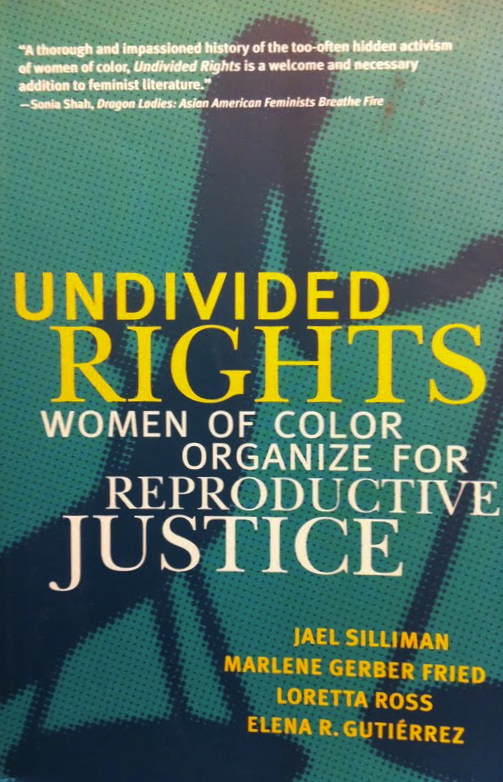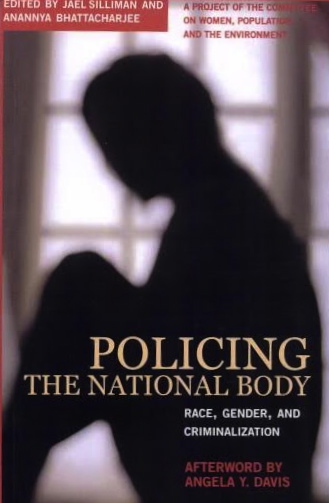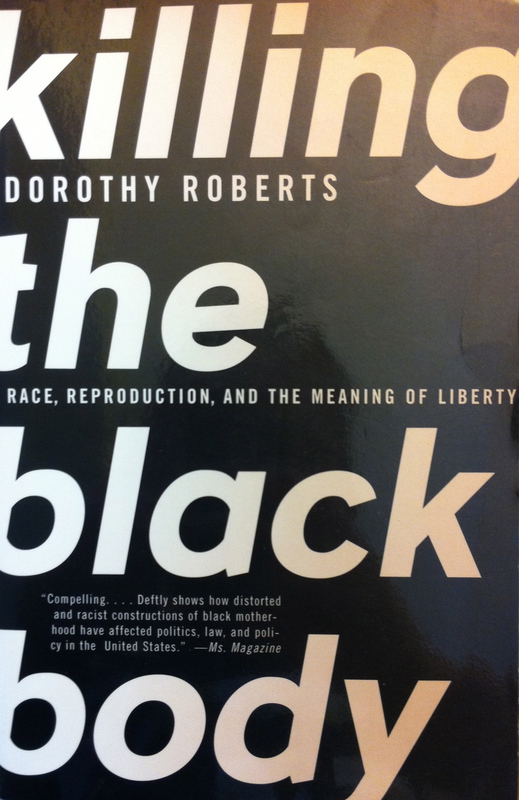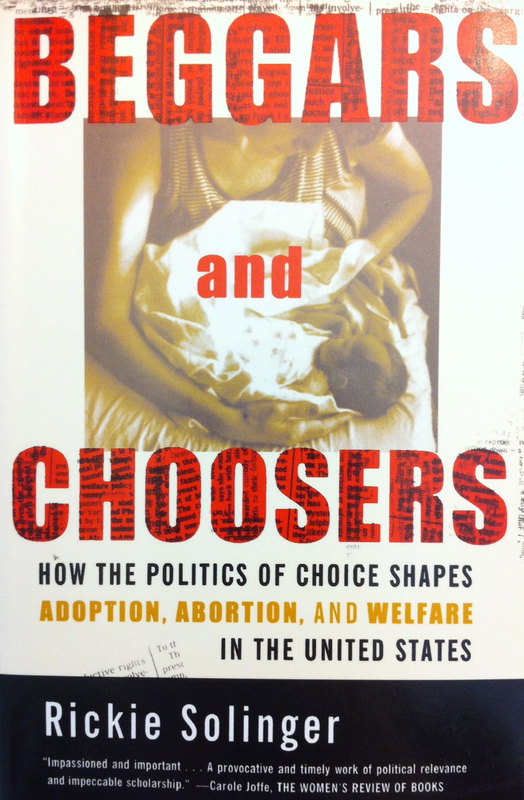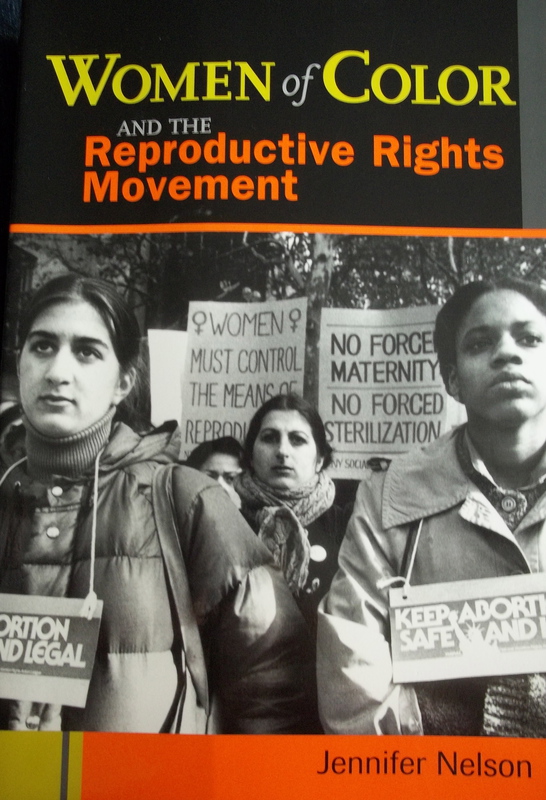Reproductive Justice Today
Today’s reproductive justice movement is an evolving response to past oppressions as well as recent assaults on women’s rights. In 1994 the term Reproductive Justice was coined by a group of black women dissatisfied with the limited focus on “choice” that characterized reproductive rights activism. Influenced by attending the Cairo Meeting on Population and Development, which foregrounded human and women’s rights, this group, Women of African Descent for Reproductive Justice, introduced the term and laid a foundation for the movement.
Since those formative days, women of color and their allies have been advocating for reproductive justice and incorporating the frameworks of human rights, social justice, and feminist theories of intersectionality into their activism, outreach, and scholarship.
Scholarship
These books are just a few examples from a growing literature that uses reproductive justice as a framework to analyze social inequalities related to pregnancy, birth, maternity care, child rearing, and access to reproductive technologies and services. They share a commitment to an intersectional, analytical approach that places the experiences and rights of marginalized women at the center.
This pilot literature database in development includes scholarly books, articles, and other sources focused on reproductive rights, reproductive health, and reproductive justice. It seeks to be interdisciplinary, reaching across academic work in medicine, law, public health, social sciences, bioethics, policy, and advocacy. We hope this bibliography will be of use to advocates and activists in the field.
Follow this link to visit the Reproductive Justice Literature Database.
Organizations
Today’s vibrant reproductive justice movement is sustained by organizations led principally by women of color. Some of these focus on reproductive and sexual health disparities in ethnic and racial communities, others work to ensure that access to reproductive technologies and services is guided by social justice principles, and while others challenge the criminalization of pregnant women. Resonating with the goals of many social justice organizations, the reproductive justice movement has grown against many odds, productively challenging mainstream feminism.
- Black Women Birthing Justice
- California Latinas for Reproductive Justice
- Center for Reproductive Rights
- Childbirth Connection
- CoreAlign
- Evidence Based Birth
- Forward Together
- Human Rights in Childbirth
- Improving Birth
- International Cesarean Awareness Network
- Law Students for Reproductive Justice
- Mamas of Color Rising
- Mother Health International
- National Advocates for Pregnant Women
- National Asian Pacific American Women's Forum
- National Latina Institute for Reproductive Health
- National Women's Law Center
- Native American Women's Health Education Resource Center
- National Partnership for Women & Families
- Radical Doula
- Reproductive Health Technologies Project
- Sister Song
- SPARK
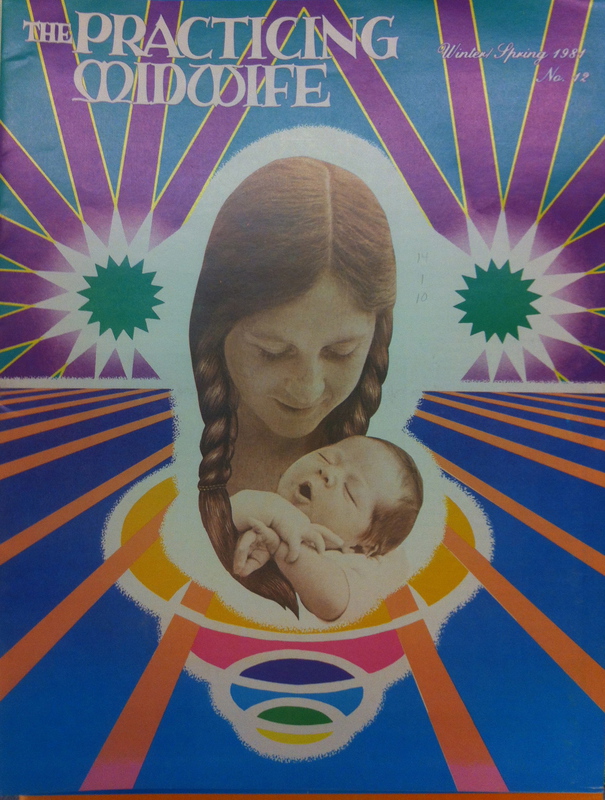
Whose Birthing Practices?

Credits

